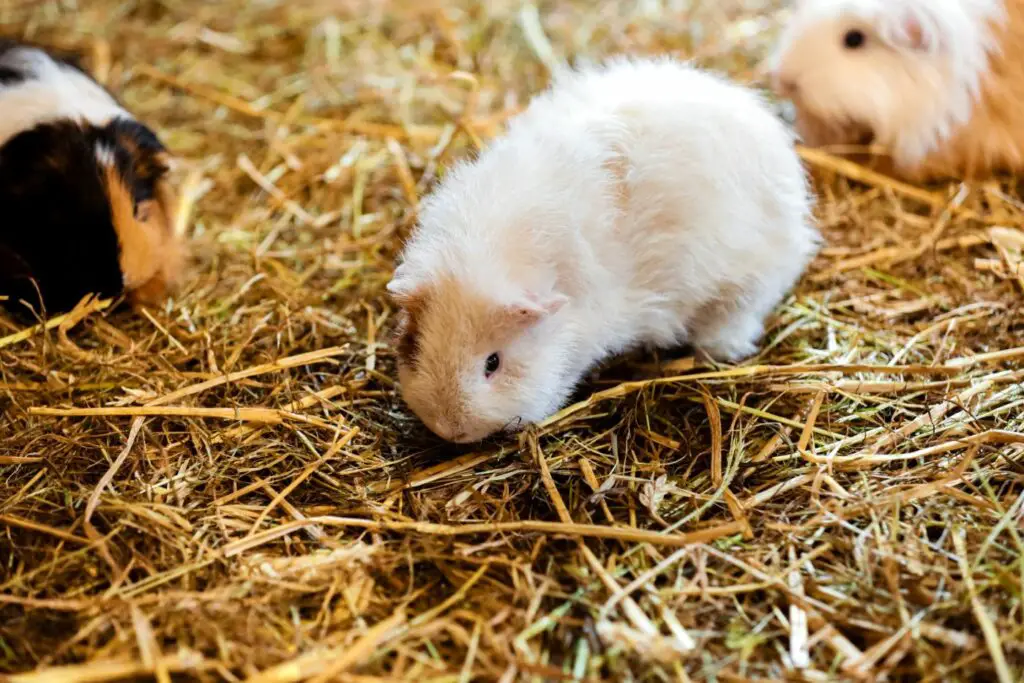Many people love having guinea pigs as pets. These small and furry creatures are very friendly and fun to be around. They have unique behavioral traits that make them fascinating pets to have.
One question that often comes up when it comes to guinea pigs is whether they mate for life. In this blog post, we will explore this question and provide insight into the mating behavior of guinea pigs.
What Is Mating for Life?
Mating for life is a term used to describe the behavior of certain animals that form long-term bonds with their mates. These animals typically stay together until one of them dies. Mating for life is common in species such as swans, wolves, and gibbons.

Do Guinea Pigs Mate for Life?
Behavioural Traits of Guinea Pigs
Guinea pigs are social animals and enjoy the company of other guinea pigs. They communicate with each other using a variety of vocalizations and body language. Guinea pigs are also known for their curious and playful nature.
Mating Habits of Guinea Pigs
Guinea pigs are polygamous and do not mate for life. Male guinea pigs, also known as boars, will mate with multiple female guinea pigs, also known as sows.
Female guinea pigs can become pregnant as early as four weeks old and can have multiple litters per year.
Factors That Affect Guinea Pig Mating Behavior
Several factors can affect the mating behavior of guinea pigs. These include age, health, and environmental factors.
Older guinea pigs may have a harder time finding a mate, while guinea pigs with health problems may not be able to mate at all.
Environmental factors such as temperature, humidity, and lighting can also affect the mating behavior of guinea pigs.
Benefits for Animals of Mating for Life
Mental and Emotional Benefits
Mating for life can have mental and emotional benefits for certain animals. For example, swans that mate for life are known to form strong bonds with their mates and can become depressed if their mate dies. However, since guinea pigs do not mate for life, they do not experience these mental and emotional benefits.
Physical Health Benefits
Mating for life can have physical health benefits for certain animals. For example, gibbons that mate for life will defend their territory together, which can reduce the risk of injury and disease.
However, since guinea pigs do not form long-term bonds with their mates, they do not experience these physical health benefits.
Group Cohesion Benefits
Guinea pigs are social animals and enjoy the company of other guinea pigs. In the wild, guinea pigs will live in groups called herds.
While guinea pigs do not mate for life, they do form strong bonds with their herd members. These bonds can help to promote group cohesion and ensure the survival of the group.
Why Guinea Pigs Do Not Mate for Life
Prey animals
Guinea pigs are prey animals that are preyed upon by a variety of predators. As a result, many guinea pigs die as a result of predation which makes mating for life difficult.
Life Expectancy of Guinea Pigs
Guinea pigs have a relatively short life expectancy, with most living between four and eight years.
This short lifespan means that guinea pigs do not have the opportunity to form long-term bonds with their mates.
Genetic Diversity
Mating for life can lead to a decrease in genetic diversity, which can have negative consequences for certain animal populations.
Since guinea pigs do not mate for life, they are able to mate with multiple partners, which helps to maintain genetic diversity within their population.
Conclusion
In conclusion, guinea pigs do not mate for life. While they do form strong bonds with their herd members, they do not form long-term bonds with their mates.
This is due to several factors, including their short lifespan and the need for genetic diversity within their population.
Guinea pigs are fascinating animals that make great pets, and understanding their behavior can help to ensure their health and wellbeing.
- How Long Do American Eskimo Dogs Live? Important Factors and Care Tips - September 29, 2023
- Do American Bulldogs Need Grooming? Essential Tips and Care Guidelines - September 29, 2023
- Do Bengal Cats Enjoy Playing? Essential Tips for Keeping Them Active - September 29, 2023